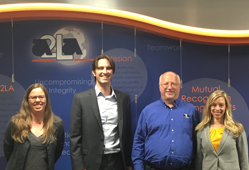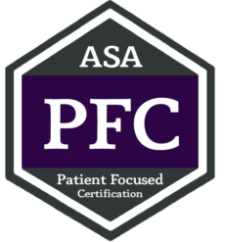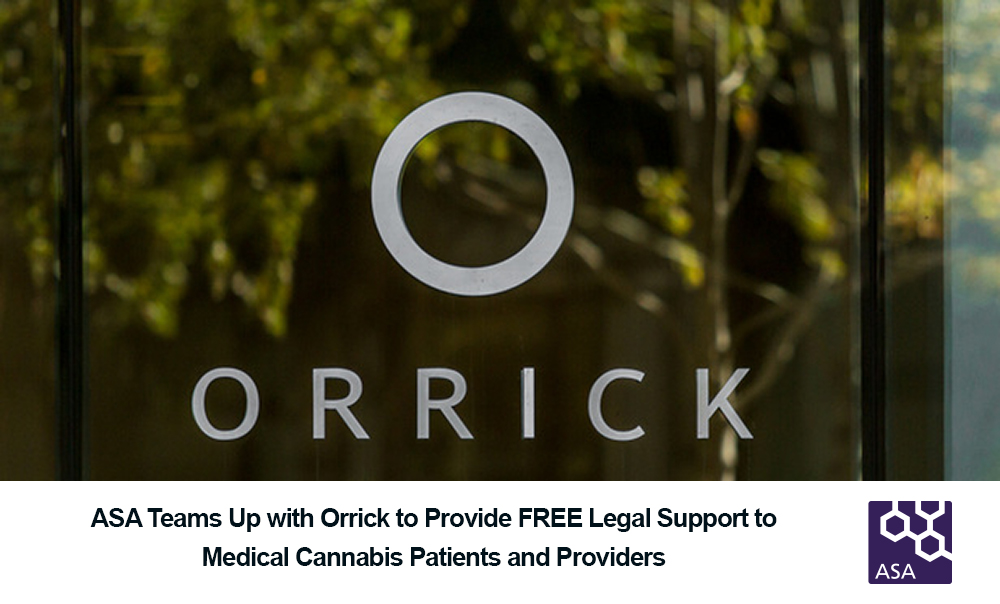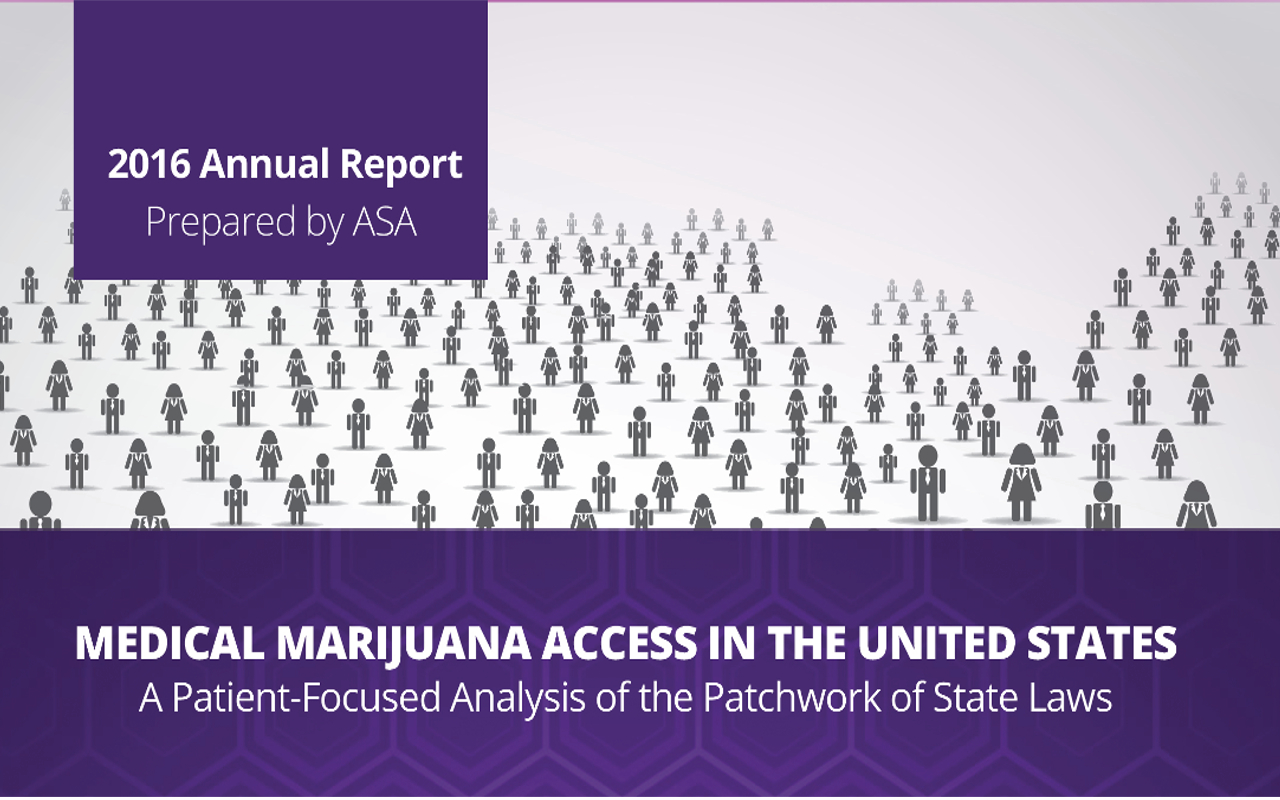(New York) – Orrick, a leading global law firm, is partnering with Americans for Safe Access’ Patients’ Rights Project to provide pro bono support to medical cannabis patients, many if not most of whom are low-income, to navigate the often confusing legal landscape of medical cannabis laws. Forty-one states, DC, Puerto Rico, and Guam all have some type of medical cannabis law today. Each law is unique and presents varying challenges for patients trying to obtain treatment in these often complex programs. Once laws are passed, medical cannabis patients and providers are often unclear about the specifics of the laws, which leaves them vulnerable to arrest, prosecution, and incarceration. Furthermore, implementation of these programs has often required litigation. The services provided by this partnership will help fill a growing void for this type of resource.
Founded in 2002, Americans for Safe Access (ASA) is the nation’s largest medical cannabis patient advocacy organization. For over a decade, ASA has offered educational tools for medical cannabis stakeholders and has worked through legislative advocacy and the court system to broaden patients’ rights to access medical cannabis. ASA identifies impact litigation through data gathered by offering medical cannabis patients legal support and cooperation with pro bono attorneys, including but not limited to, public defender offices. This impact litigation has helped protect and expand patients’ rights and uphold the validity of state medical cannabis programs.
“We are honored to be working with Orrick on this important project. With over 2 million medical cannabis patients nation-wide and laws evolving on a daily basis, this partnership means we can keep up with the demand on the Patient’s Rights Project” said Steph Sherer, Executive Director of ASA.
The project includes creation and distribution of state-by-state legal manuals for patients and guides for public defenders, defending medical cannabis patients. In the fall, Orrick will be coordinating attorneys to support ASA’s legal hotline as well. The hotline will not only serve individual patients but will also help monitor implementation of state medical cannabis programs.
Founded in San Francisco a century and a half ago, Orrick today is named by Law360 as one of the “Global 20” leading firms. Their platform offers clients a distinctive combination of local insight and global reach across 25 offices. Orrick is also well known for its sustained pro bono commitment. Their pro bono program has been praised for the dedication of its lawyers to supporting diverse causes with tangible results—including high-profile immigration disputes, civil rights litigation, advocacy to solve systemic problems and grassroots global development through an innovative impact finance initiative. The firm’s commitment to serving its communities worldwide is underscored by the full participation of lawyers around the firm on important matters for low-income clients.
“We are very excited to start a pro bono relationship with such a dynamic nonprofit, as Americans for Safe Access. They offer first-rate advocacy in ensuring that low-income patients with a medical need for cannabis have the legal and other necessary support to address the challenges faced by their medical conditions and the use of a drug that makes life better for these patients,” said Rene Kathawala, Orrick’s firm-wide pro bono counsel.
Over the last fourteen years, ASA has helped thousands of patients with legal support through their toll-free patient hotline, online interactive FAQ, and one-on-one visits with patients and other stakeholders. Changing laws have reduced, but not eliminated, criminal sanctions and prosecutions of legal medical cannabis patients and others. However, patients still face pervasive discrimination in employment, access to health care, housing, and parental rights. They also face inappropriate harassment and prosecution.
“ASA anticipates that the support provided by Orrick will be increasingly significant as medical cannabis laws continue to be adopted, amended, and implemented nationwide” continued Sherer. “This type of professional help and capacity is needed to protect patients and providers, identify opportunities to expand their rights, and inform policymakers about the challenges that remain.”





